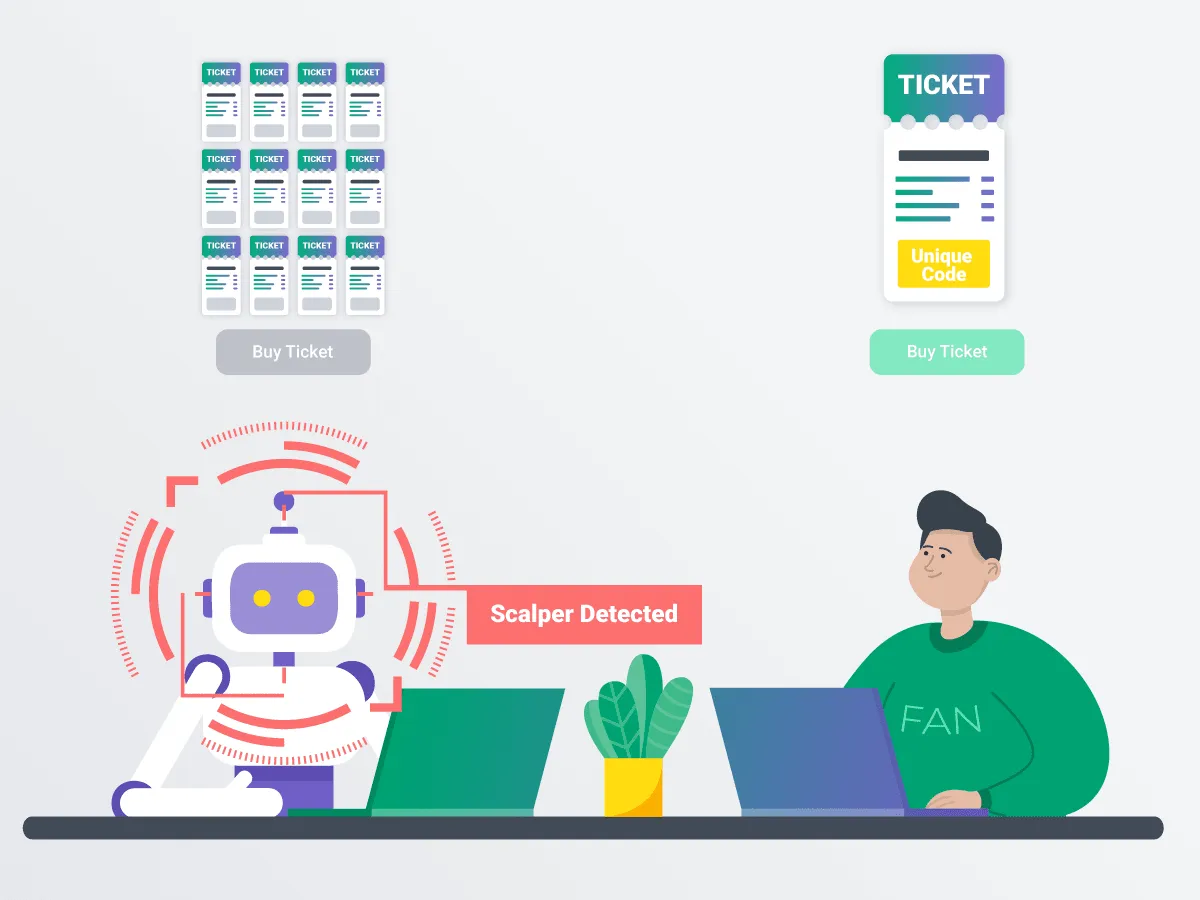The ticketing industry in 2026 faces both unprecedented challenges and exciting opportunities for innovation. While new technologies promise to solve longstanding problems, they also introduce new complexities. Economic pressures are forcing venues and platforms to operate with thinner margins while customer expectations continue to rise.
At the heart of these challenges lies the potential for transformation. The platforms and venues that successfully navigate these obstacles will establish competitive advantages that define the industry's next decade.
This article, leveraging insights from Softjourn's extensive experience in ticketing and direct conversations with industry leaders, outlines the critical challenges facing the industry and strategic approaches to overcoming them.
We will shed light on areas that require immediate attention, from modernizing outdated infrastructure to addressing sophisticated fraud operations, operational inefficiencies, and persistent integration gaps that hinder innovation.

1. Modernizing Outdated Technology and Tech Debt
Challenge Overview
The reliance on outdated technology and legacy systems remains one of the ticketing industry's most persistent challenges. These systems limit agility, hinder innovation, and create compounding technical debt that becomes increasingly expensive to address over time.
Tech debt accumulates when platforms implement quick fixes and temporary solutions rather than addressing underlying architectural issues. As these workarounds pile up, the system becomes more fragile, harder to maintain, and resistant to integrating new technologies.
Josh Katz, former founder and CEO of YellowHeart and currently Founder of Beach Lane, observes that legacy technology is now preventing platforms from adopting emerging capabilities. "Historically, the live entertainment business has been very slow to move towards the use of new technologies. Eventually, I'm sure they will start using AI, although I believe that many of the incumbent tech stacks might not be able to do much integration because of how outdated and old they are."
Taras Romaniv, Solution Architect at Softjourn, emphasizes the security implications: "Out-of-date legacy systems can also bring additional security risks, as vendors may no longer provide services such as security patches and updates, and may no longer meet newer regulatory requirements needed for handling payment and user data."
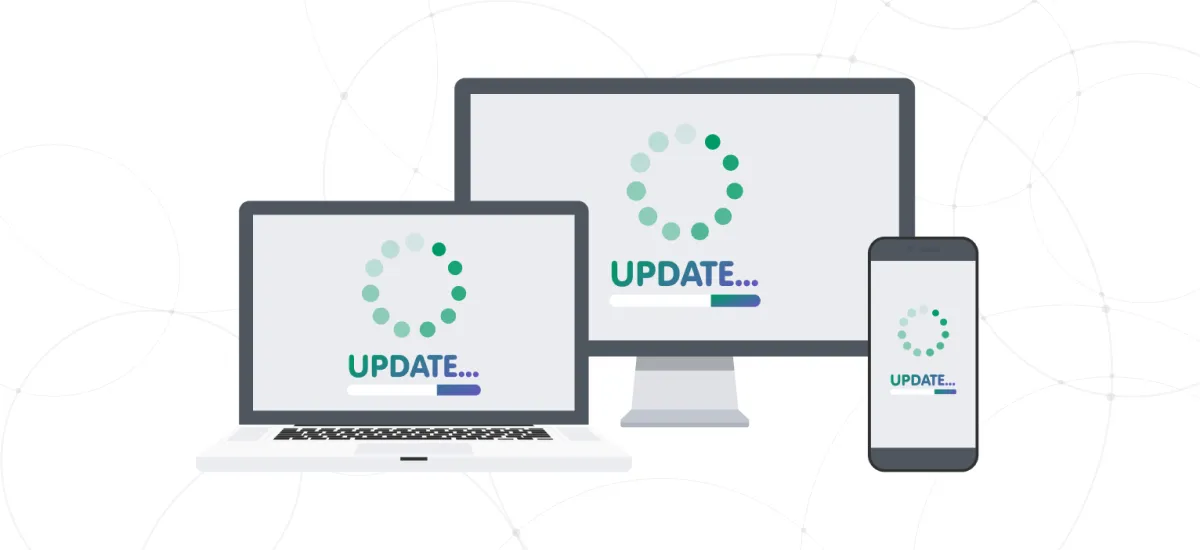
Strategies for Overcoming
Addressing tech debt and modernizing legacy systems requires a dual approach: conducting regular audits of the technology stack to identify critical upgrade areas, and maintaining a flexible development strategy that prevents new debt from accumulating.
Key strategies include:
- Cloud Migration. Moving from on-premise solutions to cloud-based infrastructure provides scalability, reliability, and the ability to handle demand spikes without significant upfront hardware investment.
- Modern Tech Stack Adoption. Transitioning to contemporary frameworks and architectures that support integration with AI, real-time data processing, and mobile-first experiences.
- Agile Development Practices. Implementing development methodologies that allow for continuous improvement rather than accumulating temporary fixes.
- Regular Code Audits. Systematically reviewing code quality, identifying technical debt, and creating roadmaps for addressing it before it becomes critical.
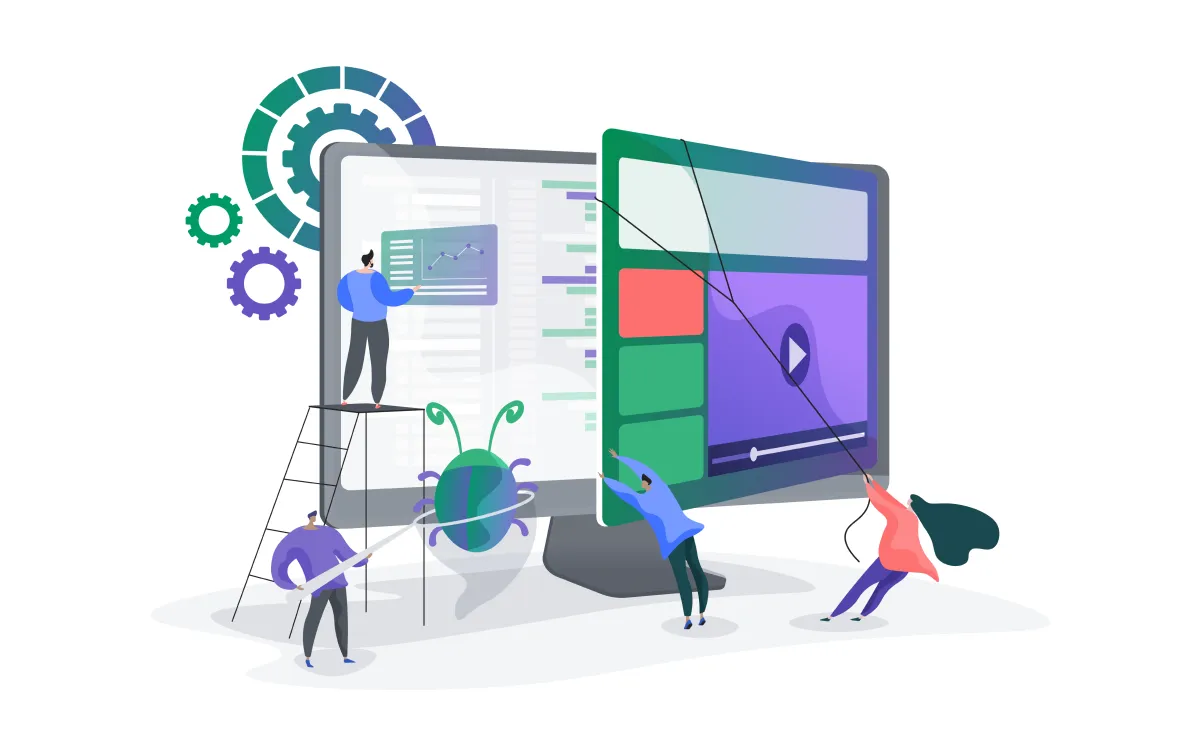
Real-World Application
In partnership with IMS, Softjourn addressed the challenge of outdated technology by rewriting their legacy application with a modern tech stack and automated features. This collaboration facilitated a smooth transition from their legacy system, resulting in increased efficiency and customer satisfaction.
Through modernization efforts, our clients have achieved significant efficiency goals, such as being able to sell 20,000-plus tickets in under 5 minutes and streamlining the user experience to reduce friction at critical moments in the purchase flow. Read More→
We've helped extend teams for many of the top names in ticketing. From developing automated features to save time in the long run, to ensuring architecture performs properly through code audit services, we've helped streamline operations and position companies for future growth.
The challenge of legacy modernization won't disappear in 2026, but platforms that prioritize systematic upgrades over temporary fixes will find themselves better positioned to adopt new technologies, maintain security compliance, and respond quickly to market changes.
2. Fraud, Bots, and Organized Crime
Challenge Overview
The ticketing industry faces an increasingly sophisticated threat landscape. What began as individual scalpers using bots has evolved into organized criminal operations that exploit ticketing systems on an industrial scale.
Traditional fraud challenges persist: automated bots programmed to exploit vulnerabilities and purchase tickets in seconds, synthetic IDs created to bypass security checks, and account takeovers where fraudsters gain unauthorized access to user accounts. But in 2026, these threats have evolved beyond these familiar patterns.
The synthetic identity threat has escalated dramatically in 2025. Fueled by generative AI, fraudsters can now craft convincing hybrid identities from real and fabricated data at scale. Lenders were exposed to an estimated $3.3 billion from suspected synthetic identities in just the first half of 2025 alone.
Fraser Mitchell, Chief Technology Officer at SmartSearch, notes that “in the age of generative AI, the rules of engagement have changed. The rise of sophisticated tools has given criminals the power to create hyper-realistic synthetic identities and deepfakes, posing a new and complex threat that requires an equally advanced response.” Traditional onboarding processes that rely on document review and limited data checks are proving no match for this new generation of AI-driven fraud.
Maury Blackman, who handles transit ticketing globally at Masabi, describes a fraud vector that doesn't get enough attention:
"In 2025, we're seeing sophisticated bots buying blocks of popular event tickets using stolen payment credentials, then laundering them through legitimate resale channels. It's not scalpers anymore. It's organized crime using ticketing as a payment testing ground. We tracked one operation that validated 47,000 stolen cards through ticket purchases in six weeks."
The consumer side remains vulnerable as well. Martin Haigh at Menta Tech notes that "the public capacity to still get scammed, buying non-existent or fake tickets online and on social media" remains surprisingly high. The proliferation of social media marketplaces has created new attack surfaces that traditional fraud prevention systems weren't designed to address.
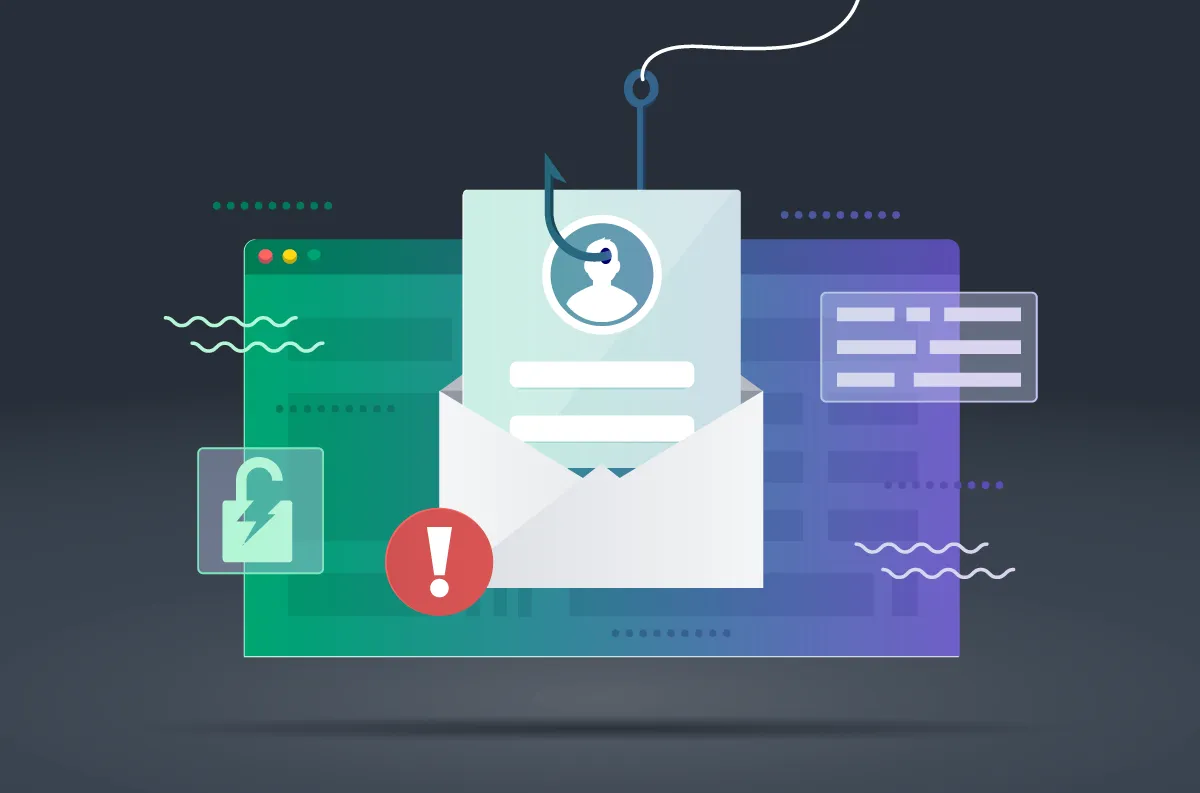
AI-Amplified Fraud Tactics
As AI technology progresses, so do the tactics used by fraudsters. Deepfake technology is amplifying deceptive capabilities, enabling sophisticated scams at an unprecedented scale. Potential scenarios include ticket holders receiving seemingly legitimate video messages from official accounts when, in reality, they're deepfakes providing false instructions for ticket exchanges.
Event organizers often respond with stricter security measures, such as facial recognition or intrusive ID verification. While these methods seem logical, they often provide only marginal improvements that fraudsters quickly circumvent. More concerning is the impact on privacy, as these measures subject everyday ticket buyers to invasive data collection.
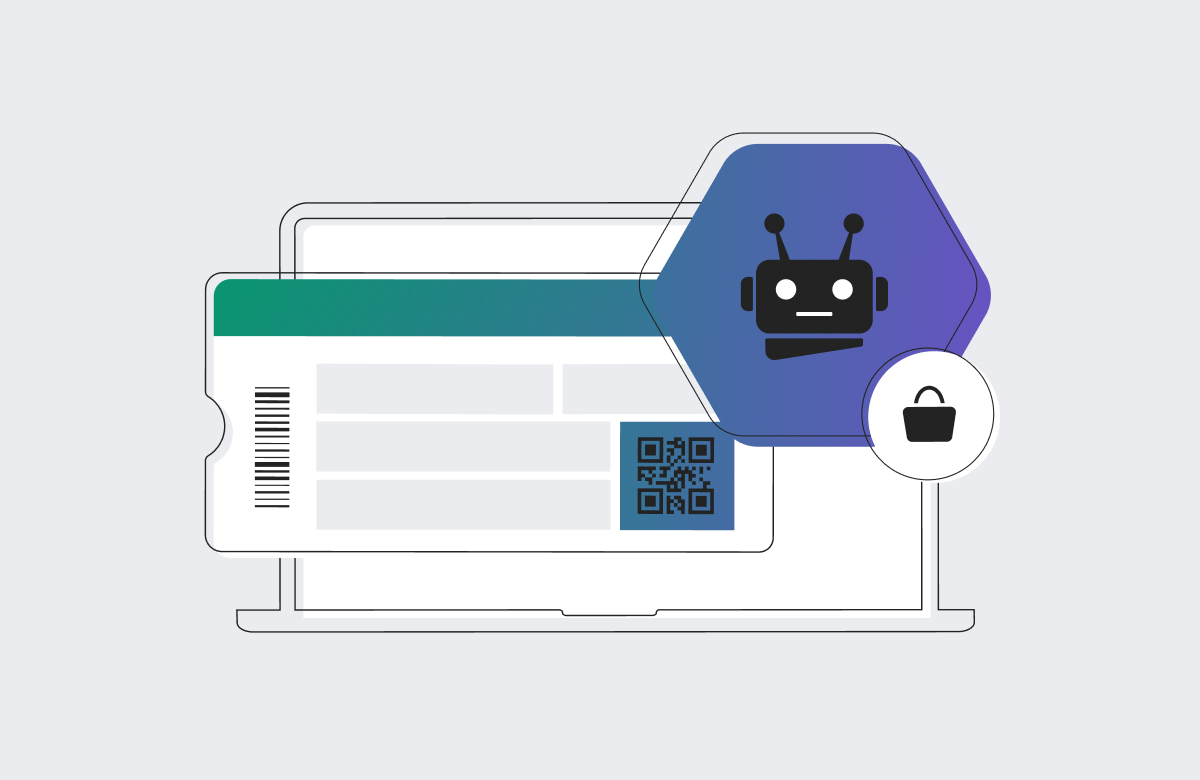
Strategies for Overcoming
Combating modern ticket fraud requires multi-layered approaches that enhance security without excessive intrusion:
- Multi-Layered Security. Implementing comprehensive security strategies that include advanced antivirus software, regular penetration tests, vulnerability scans, and risk monitoring significantly enhances cybersecurity posture.
- AI-Powered Fraud Detection. Real-time fraud detection systems can analyze transaction patterns and detect anomalies before scams escalate. Ruben Meiland at TicketSwap notes that "automated trust and safety through real-time fraud detection, anomaly spotting, and smarter seller and buyer verification will drastically reduce manual review overhead."
- Identity Verification Without Friction. Maury Blackman of Masabi advocates for verification that maintains user experience: "When we implemented softer verification layers in transit systems, we saw fraud drop 34 percent while maintaining conversion rates. Ticketing platforms need this: a way to confirm the buyer is real without making them upload their driver's license or killing the purchase flow."
- Blockchain-Based Ticketing. Implementing blockchain provides verifiable, tamper-proof records of ticket ownership, reducing the risk of fraudulent transfers. Platforms that have implemented blockchain-based ticketing are already seeing tangible results, cutting fraud-related losses by up to 40%.
- Official Communication Channels. Blockchain-verified messages or in-app notifications ensure that attendees only receive legitimate updates, countering deepfake scams.
- Targeting the Monetization Side. Martin Haigh suggests a different angle: "Stop them selling tickets too. The best way to do that is forcing secondary marketplaces to only pay out to bank accounts and only allow an account to be linked to a unique bank account." This approach targets the monetization side of fraud rather than just the purchase side.
Vivenu recently unveiled an integrated resale solution built directly into organizers' shops and seat maps, exemplifying this trend. The platform gives event organizers ownership of the resale channel while offering fans a secure, transparent marketplace. This approach allows organizers to maintain visibility into ticket movements, capture additional transaction fees, and ensure fans have access to legitimate resale options rather than being forced to third-party marketplaces.
Real-World Application
In partnership with Project Admission, Softjourn enhanced payment security by migrating from Stripe Charge API to Payment Intents with 3D Secure authentication. This upgrade strengthened protection against chargebacks and fraudulent transactions, giving Project Admission's customers robust security while maintaining a frictionless checkout experience. The implementation was delivered on time and is now operating smoothly in production, protecting both the business and ticket buyers. Read More→
The fraud challenge in 2026 isn't just about implementing more security. It's about implementing smarter security that stops organized operations while maintaining the frictionless experience that legitimate customers expect.
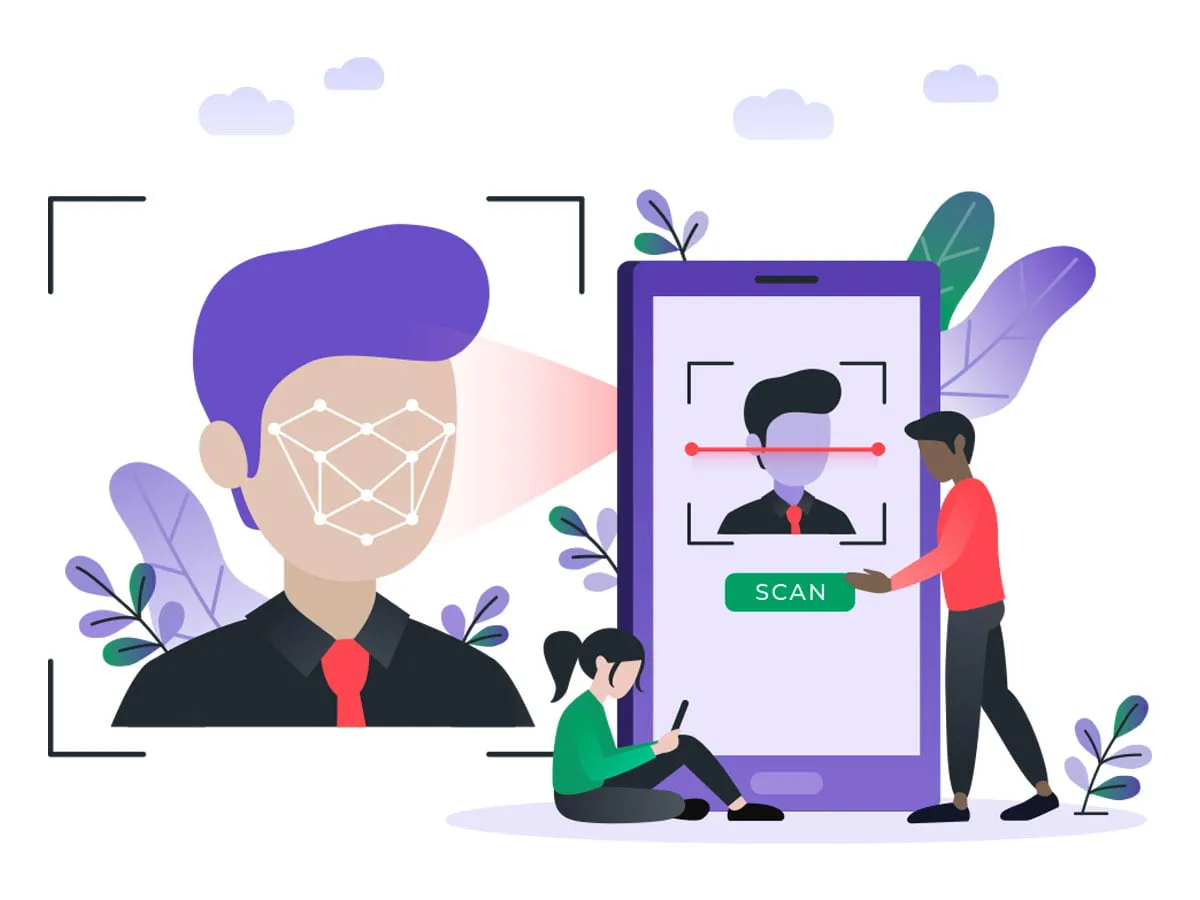
3. Operational Pain Points: No-Shows, Exceptions, and Transfers
Challenge Overview
Beyond the high-profile challenges of fraud and technology modernization, ticketing platforms face persistent operational pain points that affect daily business. These challenges may not make headlines, but they directly impact revenue, customer satisfaction, and operational efficiency.
The No-Show Crisis
For small and mid-sized venues, last-minute cancellations and no-shows have become a significant revenue threat. The shift toward last-minute purchasing has been accompanied by an alarming increase in cancellations within 72 hours of events.
James Bernard, who runs Alcatraz Escape Games, describes how group booking behavior has deteriorated. "We used to see corporate groups book 2-3 months out. Now they're booking 10 days before an event, and 40 percent are canceling within 72 hours because 'someone got sick' or 'plans changed.' Dynamic pricing models that worked in 2023 are bleeding revenue now because you can't predict inventory."
Bernard implemented a 48-hour cancellation policy that cut revenue loss by $12,000 in six months. "Ticketing platforms need to build flexible penalty systems that venues can customize, because right now the burden of empty slots falls entirely on us while the platform still takes their cut," he explains.
The challenge is particularly acute for venues that operate on thin margins and can't absorb the cost of empty inventory. Platforms that provide customizable cancellation policies, deposit requirements, and automated reminder systems can help venues protect themselves without creating friction for legitimate customers.

Exception Handling: When Things Go Wrong
Everyone knows how ticketing is supposed to work when everything goes right. The real operational challenge is what happens when it doesn't.
Matt Smith of SUPER identifies this as a critical pain point: "Exception handling," he says, “Everyone knows how the process works when everything goes right. What no one talks about is what happens when it doesn't: seat changes, last-minute guest swaps, accreditation issues, names changing after credentials are printed, or a ticketing system not matching what's in a hospitality system. These things happen constantly. Right now, they get solved with late-night emails, Excel tabs, and people who just 'know how to fix it.' There's a lot of room for better tools there."
These edge cases consume disproportionate staff time and create customer service nightmares. Platforms that build robust exception handling workflows, clear override protocols, and audit trails for changes will reduce operational burden and improve customer satisfaction when problems inevitably occur.
Transfer and Resale Confusion
Ticket transfer remains confusing for average users. Toby Baptist at Las Vegas Tickets notes, "I think ticket transfer is still very confusing to the average ticket user. Each primary ticketing company has a different method, and unless you have experience using their system, customers often get confused or need help with their transfers."
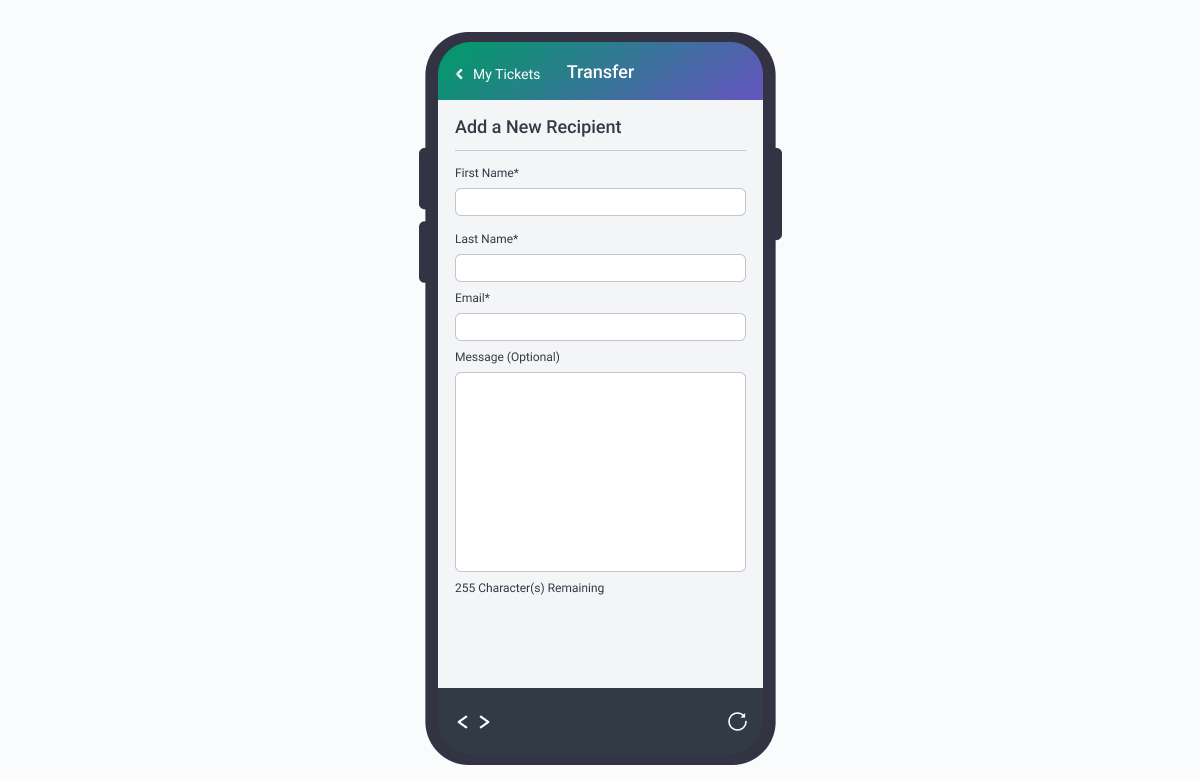
This lack of standardization creates support overhead for platforms and frustration for customers. When transferring tickets requires navigating platform-specific interfaces, looking up confirmation numbers, or understanding different authentication methods, customers abandon the process or contact support for help.
The solution requires either industry-wide standards for ticket transfers or a significantly better user interface design that makes the process intuitive even for first-time users.
Strategies for Overcoming
Addressing these operational challenges requires platforms to:
- Build flexible policy frameworks that venues can customize for cancellations, no-shows, and deposits
- Invest in exception handling tools that formalize workflows for common edge cases rather than relying on manual workarounds
- Standardize transfer experiences or make them intuitive enough that customers don't need platform-specific knowledge
- Provide better analytics on cancellation patterns, no-show rates, and common exception scenarios so venues can make informed policy decisions
These operational pain points may seem mundane compared to AI integration or security, but they directly affect profitability and customer satisfaction every day. Platforms that solve these unsexy problems will earn loyalty from venues and organizers who are tired of managing operational chaos.
Real-World Application
When Ticketmaster needed to simplify maintenance across iOS and Android ticket-scanning apps, Softjourn developed a cross-platform solution using Xamarin. The app included critical offline scanning functionality, ensuring ticket validation continues even when network connectivity fails. This operational resilience prevented patron entry delays and supported Ticketmaster's commitment to frictionless event experiences. Within the first few months of beta testing, over 200,000 tickets were scanned using the new solution. Read More→
4. Integration and API Ecosystem Gaps
Challenge Overview
One of the ticketing industry's most frustrating challenges is also one of its least visible: the persistent gaps in how systems communicate with each other. Tickets don't exist in isolation. They drive hospitality counts, transportation logistics, budgets, rooming lists, guest communications, and countless other operational needs. Yet the data rarely flows cleanly between systems.
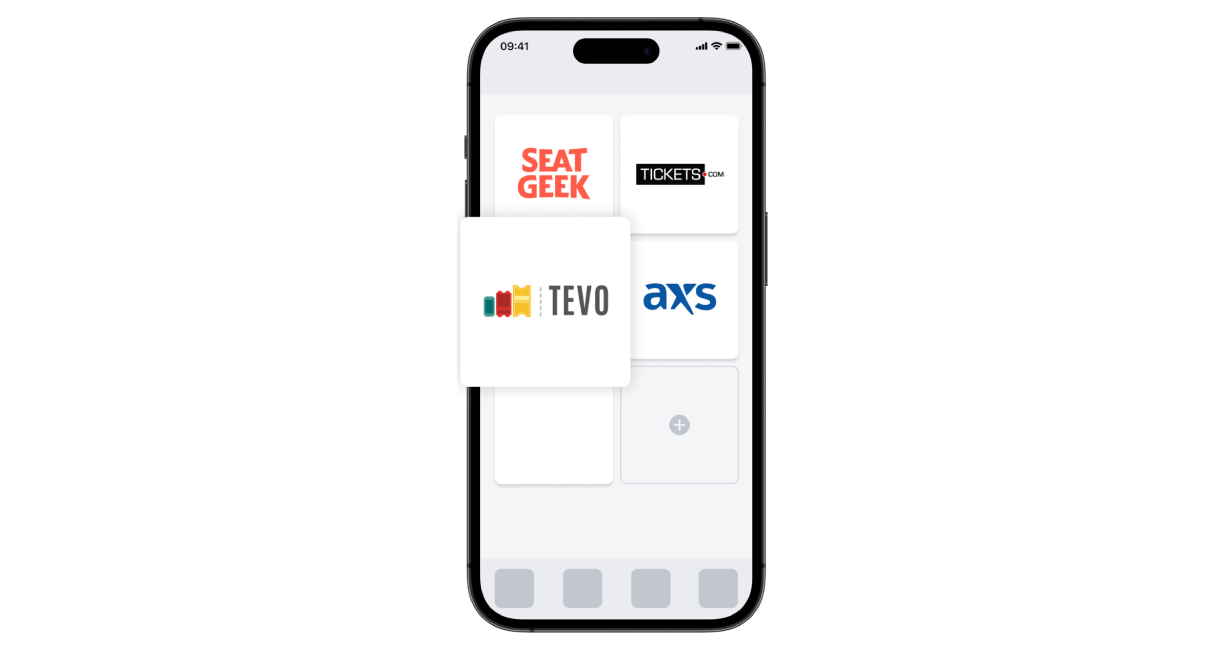
Matt Smith at SUPER describes a problem he’d love to see solved:
"The disconnect between ticketing platforms and everything else they impact. A ticket drives hospitality counts, transportation, budgets, rooming lists, and guest communication. But the data rarely flows cleanly between systems. If we had cleaner APIs, shared standards and better integrations, a lot of operational pain would disappear and the fan experience would be smoother too."
This disconnect forces organizations to manually move data between systems, creating opportunities for errors, duplication of effort, and delays. Information that should flow automatically instead requires export, transformation, and import processes that consume staff time and introduce inconsistencies.
The Content and Complexity Problem
The API challenges extend beyond basic data exchange. Alex Grant, Co-Founder at Travel Curious Group, identifies a specific gap that holds back industry growth: "None of the APIs support content, which holds back the industry from growing as fast as it could. There is also the struggle with pricing structures as many resellers are geared to selling simple tickets but don't have the UI or the APIs to support more complex products, and products are getting more complex all the time."
As ticketing products evolve beyond simple admission to include packages, add-ons, dynamic components, and variable pricing, the APIs that connect systems haven't kept pace.
Resellers and distributors struggle to represent these complex offerings accurately, leading to either simplified presentations that don't capture the full value proposition or custom integrations that are expensive to build and maintain.
Changing Operational Approach
Smith notes that leading organizations are rethinking how they handle ticketing data:
"We don't treat ticketing as its own step anymore. It's now built into everything we do: budgeting, VIP packaging, hotel planning, all of it. Instead of pulling spreadsheets after the fact, we're building systems that connect ticket data directly into our operational tools like Airtable or Supabase. It's not perfect yet, but ticketing has gone from being an output to being part of the foundation."
This operational shift requires platforms to think differently about data access and integration. Rather than treating APIs as afterthoughts or limiting access to protect competitive advantages, successful platforms in 2026 will provide robust, well-documented APIs that enable customers to build ticketing into their broader operational workflows.
Strategies for Overcoming
Addressing integration challenges requires commitment at the platform level:
- API-First Development. Building platforms with integration as a core design principle rather than an add-on feature ensures that data can flow to and from other systems efficiently.
- Standardization Efforts. While complete industry standardization may be unrealistic, adopting common patterns for authentication, data formats, and common operations reduces integration complexity.
- Comprehensive Documentation. Even the best API is useless without clear documentation, code examples, and responsive developer support.
- Support for Complex Products. APIs must accommodate the full complexity of modern ticketing products, including packages, dynamic pricing, add-ons, and conditional access rights.
- Webhook Support. Real-time event notifications allow connected systems to stay synchronized without constant polling, reducing latency and server load.
Real-World Application
Softjourn partnered with SecuTix to develop extensive integrations that connected their ticketing platform with Salesforce CRM, external ticketing databases, and 24 different payment gateways. This integration work enabled SecuTix to process more events, reach larger audiences, and ensure real-time data synchronization across multiple systems. The integrations helped SecuTix manage 30% year-over-year growth by providing the technical infrastructure to scale operations efficiently. Read More→.
5. Secondary Market and Onsale Challenges
Challenge Overview
The relationship between primary and secondary ticketing markets remains one of the industry's most contentious issues. Questions of pricing fairness, authenticity, artist compensation, and fan access continue to generate debate, regulatory scrutiny, and technological responses.
Simultaneously, the on-sale process for high-demand events creates operational chaos, poor fan experiences, and provides opportunities for sophisticated scalping operations that platforms struggle to prevent effectively.
The Secondary Market Debate
Toby Baptist at Las Vegas Tickets sees the secondary market discussion dominating industry conversations in 2026. "I think the discussion regarding the secondary market and trying to institute no resale at all or resale price caps will continue to dominate the discussion in ticketing," he notes. "When you try to stifle a fair and free open market, a lot of times there are several unintended consequences. In ticketing, there are thousands of transactions daily, both on the primary and secondary market that process with no issues. For some reason, the focus is on a small segment of events, sales, or ticket listings, and these small issues are often pointed to in an effort to change an entire industry."
The scale of the challenge is significant. Industry research presented at TheTicketingBusiness Forum 2025 highlighted concern over the illegal resale market, now valued at €2.5 billion, sparking renewed calls for unified EU regulation.
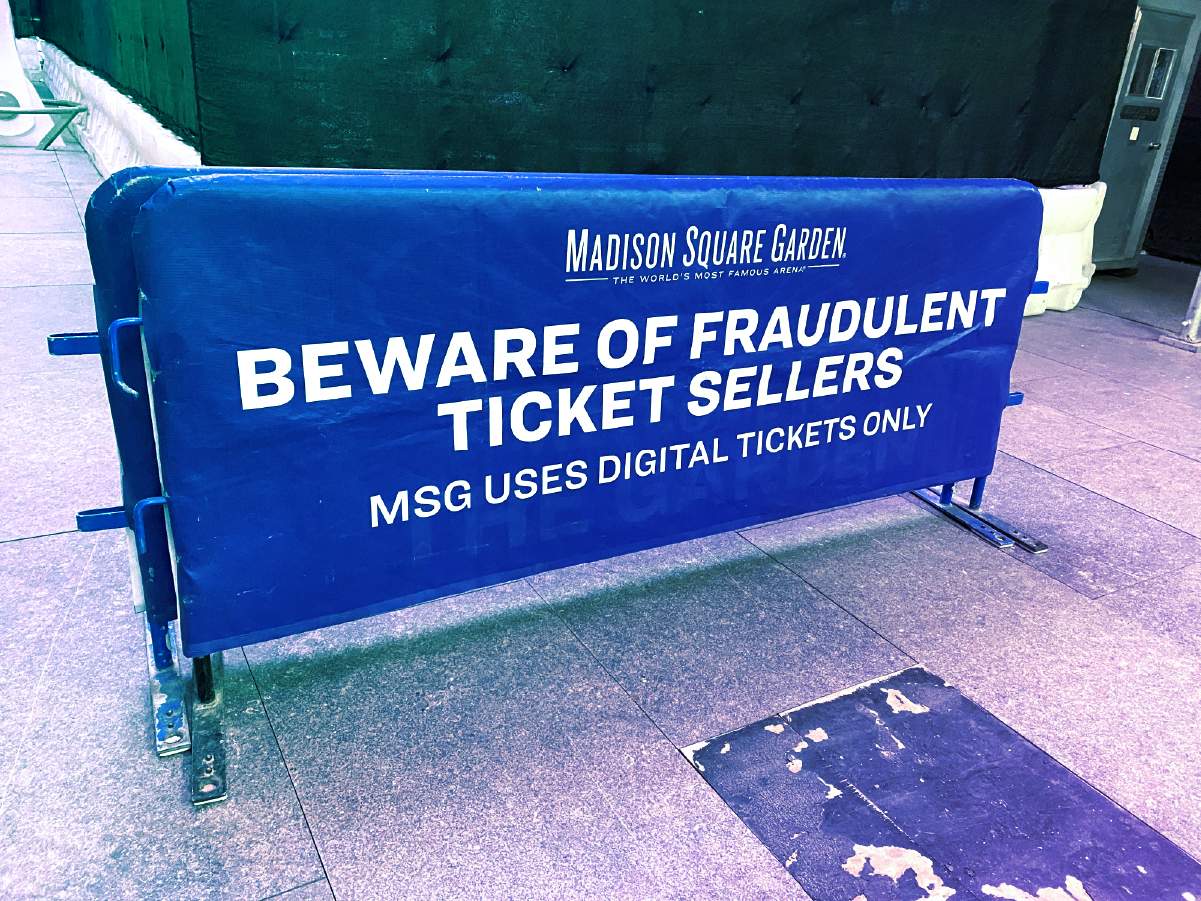
Baptist advocates for transparency on the primary side as the solution. "A more fair approach would be to make ticketing more transparent on the primary and from there allowing the buying public to make more informed decisions, which will ultimately bring balance to the secondary market."
Martin Haigh at Menta Tech proposes targeting resale mechanisms differently: "A different angle would be to stop them [resellers] selling tickets. The best way to do that is to force secondary marketplaces to only pay out to bank accounts and only allow an account to be linked to a unique bank account." This approach addresses the monetization side rather than just purchase restrictions.
Josh Katz, founder of Beach Lane and Yellowheart, believes the industry is moving in the right direction. "I think overall the industry is headed towards more transparency in ticketing, and we will see that in 2026. Consumers are looking for fair trade ticketing and are sick of getting ripped off by both Ticketmaster and secondary market providers with ridiculously high fees and zero transparency."
Onsale Chaos and Anti-Scalping Challenges
Beyond the ongoing secondary market debate, the onsale process for major events remains fundamentally broken. Industry expert in the sports sector, Sam Lake, identifies this as the single biggest issue in major event delivery today, noting that it's not a technology problem but an incentive problem.
Lake says, "It is not in the economic interest of providers to solve this problem, so nobody bothers, but it is the single biggest issue in major event delivery today.” He explains, "The tech exists to solve it: blockchain for verifiable lottery, hard caps on buying volume, programmable protocols, dynamic IP/bot restrictions, enabling a pro-active resale & valuation market within existing ticketing platforms are all solutions that are in-market today. The fundamental problem is incentive alignment, not technology. The industry at large will continue to accept the status quo while they can make money. Big artists and venues will need to do something substantial to truly solve it.”
His assessment highlights an uncomfortable truth: many of the technical solutions to prevent scalping and improve onsale experiences exist, but economic incentives don't align around implementing them effectively. When platforms profit from service fees regardless of whether tickets reach fans or scalpers, the motivation to solve the problem diminishes.
Regulatory Scrutiny Intensifies
The challenges facing secondary markets and onsale processes have attracted increased regulatory attention. The US Department of Justice and FTC launched a public inquiry into unfair and anticompetitive practices in the live concert and entertainment industry, seeking public input on issues like ticket scalping, bots, and monopolistic behavior, with the goal of informing new regulations or legislation.
This regulatory pressure adds urgency to solving these problems. Platforms that proactively address scalping, improve onsale fairness, and increase transparency may find themselves better positioned when new regulations arrive than those waiting to be forced into compliance.

Strategies for Overcoming
Addressing secondary market and onsale challenges requires both technical and structural approaches:
- Transparent Pricing. Implementing clear, upfront pricing on primary markets that reduces the information asymmetry driving secondary market premiums.
- Secure Digital Ticketing. Using blockchain or other tamper-proof technologies to ensure authenticity and track ownership throughout ticket lifecycle.
- Fair Onsale Mechanisms. Implementing verifiable lotteries, purchase caps, and bot detection that prioritize real fans over automated scalpers.
- Integrated Resale Options. Building official resale functionality into primary platforms so organizers maintain visibility and control over the ticket lifecycle.
- Incentive Realignment. Finding business models where platform success is tied to fan satisfaction rather than just transaction volume.
Real-World Application
Developing transparent and fair pricing algorithms, implementing secure digital ticketing solutions to ensure authenticity, and fostering partnerships with secondary market platforms can help address these challenges.
The secondary market and onsale challenges won't be solved by technology alone. They require industry-wide recognition that current systems serve platform economics more than fan interests, and a willingness to restructure incentives even when short-term profits might suffer. The platforms and artists that take this approach will build long-term loyalty that outlasts any single event's service fees.
6. Payment Processing and Merchant Complexity
Challenge Overview
While customer-facing payment experiences have become relatively seamless, the backend complexity of merchant onboarding, settlement logic, and payout processing remains a persistent challenge for ticketing platforms. These operational difficulties rarely affect customers directly but create significant friction for event organizers and venues trying to get paid efficiently.
Sam Mogil, CEO & Co-Founder of SquadUp, identifies this as one of ticketing's most understated pain points:
"Merchant onboarding and settlement logic. KYC loops, bank-account validation, regional risk routing, payout timing controls, and cross-border support remain brittle. Every platform pretends it's solved; every organizer experiences delays, mismatches, and unexplained banking errors."
The challenge stems from the complexity of payment infrastructure. Event organizers need to complete Know Your Customer (KYC) verification, validate bank account information, navigate different risk assessment rules based on geography, understand payout timing that varies by payment processor, and handle cross-border transactions with different regulations and fee structures.

Why This Matters
For platforms, payment complexity creates a support burden and customer dissatisfaction. When organizers experience unexplained delays in receiving funds, mismatched settlement amounts, or confusing fee structures, they blame the ticketing platform even when the issue lies with the underlying payment infrastructure.
For organizers, especially smaller venues and independent promoters, payment delays directly affect cash flow. Events operate on tight margins, and unexpected holds or processing delays can create real financial stress.
The problem compounds for platforms operating internationally. Each country has different banking regulations, KYC requirements, tax treatment, and payment preferences. Building a system that handles all these variations gracefully requires significant technical investment that many platforms haven't prioritized.
Strategies for Overcoming
Addressing payment complexity requires platforms to invest in infrastructure that most customers will never see:
- Streamlined Onboarding Flows. Simplifying the merchant onboarding experience with clear guidance, automated verification where possible, and transparent communication about timing and requirements.
- Proactive Communication. Rather than forcing organizers to contact support when payments are delayed, implementing automated notifications that explain holds, processing timelines, and expected deposit dates.
- Flexible Payout Options. Providing multiple payout timing options (instant, daily, weekly) so organizers can choose the schedule that matches their cash flow needs.
- Unified International Support. Building or integrating with payment processors that handle cross-border complexity invisibly, rather than passing that complexity to organizers.
- Clear Error Messages. When issues occur, providing specific, actionable error messages rather than generic banking failures that leave organizers uncertain about next steps.

Real-World Application
Softjourn helped Tacit Innovations become the first platform to enable in-app Apple Pay purchases funded by Interac debit cards, significantly expanding their potential user base. The project required creating entirely new integration code to connect Apple Pay with Canada's leading domestic debit network, a payment infrastructure challenge that had never been solved before. By navigating the technical complexities of payment processor relationships with Interac and Moneris, Softjourn delivered a solution that removed adoption barriers for debit-preferring consumers while maintaining a frictionless ordering experience. Read More→
7. Customer Conversion and Retention
Challenge Overview
Attracting potential customers to ticketing platforms has become easier with improved marketing and discovery tools. Converting those browsers into buyers and then retaining them for future events remains difficult. Economic pressures, abundant entertainment alternatives, and rising customer expectations create a challenging environment for building long-term customer relationships.
The conversion challenge manifests in multiple ways: cart abandonment when fees aren't transparent, friction in checkout flows that causes users to give up, and the difficulty of turning single-event buyers into repeat customers or committed season ticket holders.

The Single-to-Season Conversion Problem
Aaron Parris, EVP and Co-Lead of Partner Success at FEVO, identifies converting casual buyers into committed customers as one of ticketing's most persistent operational pain points.
"Converting the single-game buyer into a future committed customer, the season ticket holder or the mini-plan buyer, has only gotten harder with economic pressures and the rise of great at-home viewing," Parris explains.
He outlines a three-part approach:
"First, the industry needs to lean into data-driven customization. We need to use data tools to truly understand and segment these single-game buyers so we can hit them with hyper-targeted remarketing. Second, we have to prioritize optimizing the controllables. The purchase flow has to be as dead simple as the Amazon model: easy search, quick checkout. And finally, we must enhance the gameday experience. Efficient parking, shorter lines, better engagement, because while we can't control the team's performance, we can control consumer touchpoints."
This challenge affects sports teams, performing arts venues, and any organization that benefits from converting casual attendees into committed supporters. The economics of customer acquisition make repeat business essential, but getting customers to commit to multiple events upfront has become increasingly difficult.
Friction and Abandonment
Even before addressing long-term retention, platforms struggle with basic conversion. Sam Mogil at SquadUp notes that "cart abandonment tied to fee transparency has spiked. Mobile-first flows dominate, with near-total intolerance for slow checkouts, extra fields, or redirects. Repeat buyers expect stored credentials and one-tap flows as baseline."
Sébastien Braun, CEO at idloom, observes similar patterns. "Lower tolerance for friction: users expect the same experience as commerce platforms: one-tap registration, stored profiles, autofill, dynamic payment methods, mobile-first. Anything that feels form heavy is abandoned."
These expectations mean that even minor friction points in the purchase flow create measurable abandonment. Every extra form field, each additional click, any moment of confusion about the total cost translates directly into lost conversions.
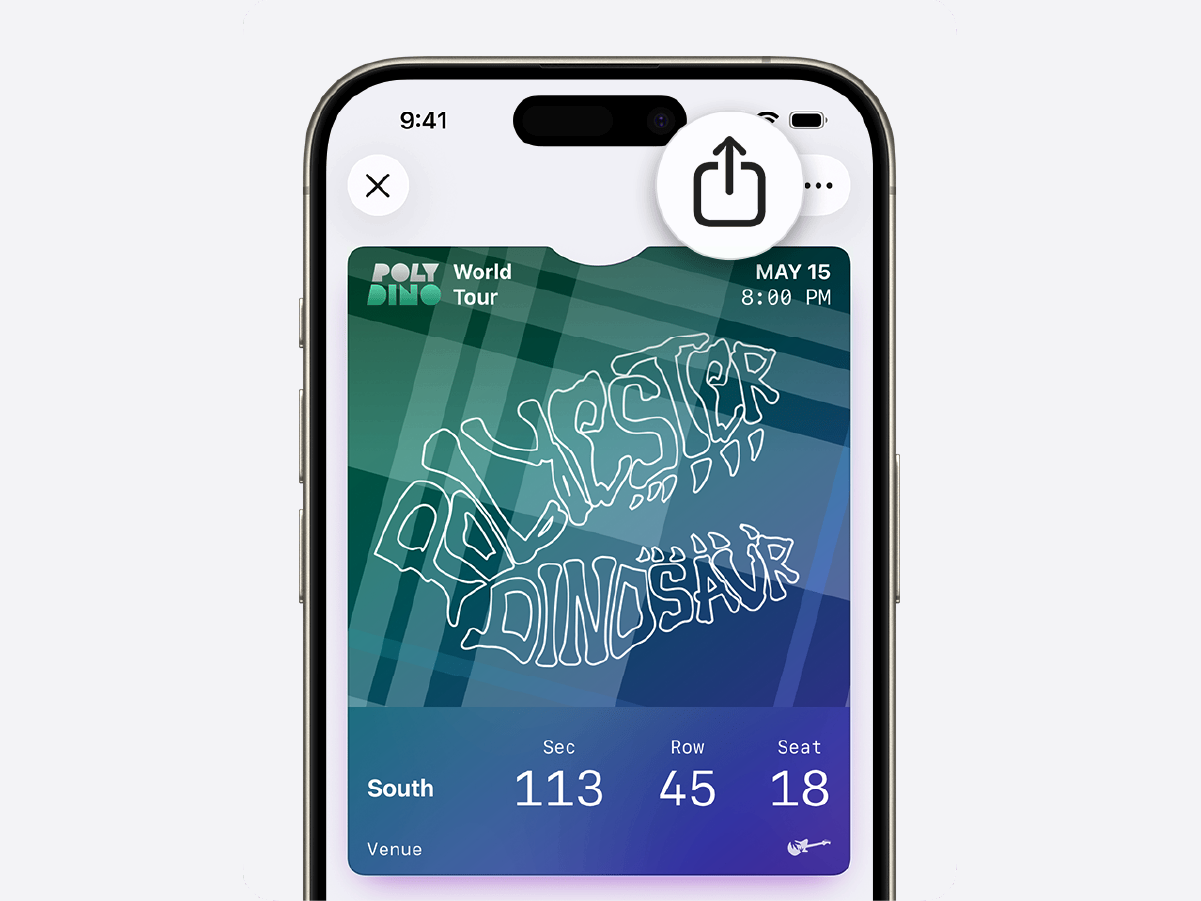
Post-Purchase Operations and Customer Experience
Conversion and retention don't end at checkout. How platforms handle the inevitable complications that arise after purchase – exchanges, refunds, transfers, and modifications – directly impacts whether customers return for future events. Manual, slow, or inflexible post-purchase processes create frustration that undermines the entire customer relationship.
Hrefna Sif Jonsdottir, Managing Director at Tixly, identifies post-purchase operations as a persistent challenge. "Even though we've made progress, things like exchanges and refunds are still too manual for many teams. We already offer self-service tools, and it's been amazing to see how much time that saves our partners. Customers expect flexibility, and box offices deserve simpler days."
Value Scrutiny and Trust Signals
Beyond friction, customers are scrutinizing value more carefully than in previous years. Ruben Meiland at TicketSwap notes, "Value sensitivity has increased. Inflation and rising event prices mean fans scrutinize fees, seller transparency, and trust signals more than before. Clear value and trust indicators heavily influence conversion."
When customers can't immediately understand what they're getting for their money or why fees are justified, they're more likely to abandon the purchase or comparison shop across multiple platforms. Building trust through transparency, clear value communication, and visible security indicators has become essential for conversion.
Strategies for Overcoming
Addressing conversion and retention challenges requires platforms to:
- Eliminate Friction. Streamline purchase flows to Amazon-level simplicity with one-tap options, stored credentials, and minimal required fields.
- Transparent Pricing. Display all-in pricing upfront and clearly communicate the value of any fees charged.
- Data-Driven Remarketing. Use customer data to segment buyers and create targeted campaigns that encourage repeat purchases.
- Optimize Mobile Experience. Ensure checkout flows work flawlessly on mobile devices with no extra fields or redirects.
- Build Trust Indicators. Display security badges, clear refund policies, and authentic reviews to reduce purchase anxiety.
- Enhance the Complete Experience. Recognize that conversion doesn't end at checkout. The event experience itself affects whether customers return.
Real-World Application
Softjourn developed a Custom Pass Builder for Spektrix that allows event organizers to design and modify digital ticket passes without technical expertise. The intuitive tool supports customization of branding, QR codes, and ticket details while ensuring compliance with Apple and Google Wallet requirements. Since launch, over dozens of clients have adopted the feature, reducing time to market and eliminating the need for developer involvement. By empowering organizers with self-service capabilities, Spektrix enhanced both customer satisfaction and operational efficiency. Read More→.
8. Complex Registration and Identity Resolution
Challenge Overview
As organizations professionalize their event programs and run more sophisticated multi-event operations, registration requirements have become increasingly complex. Simultaneously, platforms struggle with a fundamental identity challenge: knowing who actually attends events, especially after tickets change hands through secondary markets or transfers.
These two problems, while distinct, both stem from ticketing systems that were designed for simpler use cases and now struggle to accommodate the complexity of modern event management.

Multi-Stakeholder Registration Complexity
Sébastien Braun of idloom identifies complex, multi-stakeholder registration flows as one of ticketing's most complained-about yet poorly solved operational pain points:
"Every organiser wants: different tracks for different audiences, multiple approval workflows, custom VAT rules, invoicing logic, SSO, badge logic, cross-event logic with shared data, and last-minute modifications without breaking everything," Braun explains. "Most platforms oversimplify this or bury complexity behind custom development."
This challenge particularly affects B2B events, conferences, trade shows, and organizations running multiple related events where attendee data needs to flow between programs. When platforms can't handle this complexity natively, organizers resort to workarounds: multiple registrations, manual data reconciliation, spreadsheet manipulation, and custom development that's expensive and fragile.
Braun notes that "this is one of the biggest gaps in the market and the fastest-growing segment as organisations professionalise their event programs."
The Last-Mile Identity Problem
While registration complexity affects organizers, identity resolution affects everyone in the ticketing ecosystem. Ruben Meiland of TicketSwap describes the challenge: "Everyone talks about knowing your customer, but ticketing systems still struggle to track the actual attendee, especially after secondary transfers. This creates pain across the ecosystem. Organizers can't personalize communications or upsells."
When tickets change hands through resale, transfer, or gifting, many platforms lose visibility into who will actually attend. The original purchaser's data remains in the system, but the actual attendee is unknown. This breaks personalization, prevents targeted upselling, complicates access control, and makes post-event analytics less valuable.
For secondary marketplaces, maintaining identity continuity throughout the ticket lifecycle provides better fraud mitigation through secure, traceable handovers and enables richer data streams for targeted communications.
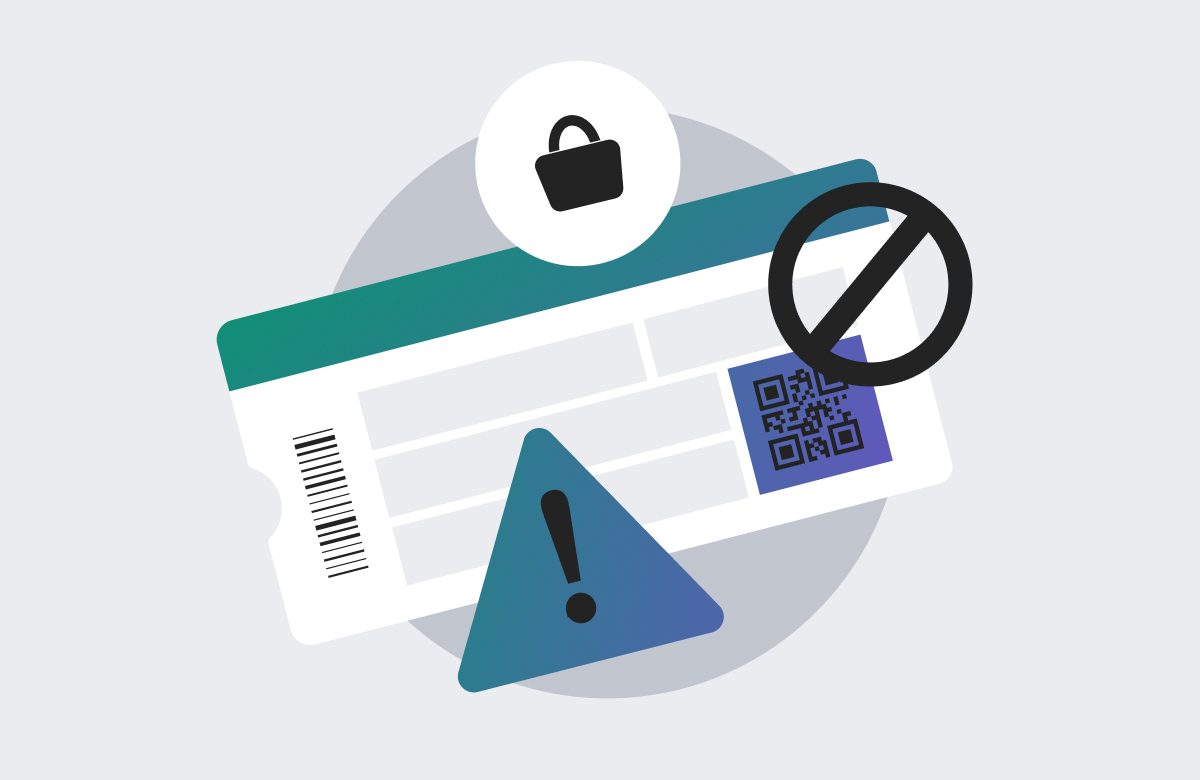
Strategies for Overcoming
Addressing registration complexity and identity resolution requires different approaches:
For Complex Registration:
- Build flexible registration systems that support multi-stakeholder workflows natively rather than requiring custom development
- Implement modular approval systems that can be configured for different use cases
- Support cross-event data sharing and persistent attendee profiles
- Provide clear APIs for custom integrations when standard features don't suffice
For Identity Resolution:
- Implement identity-linked ticketing that maintains attendee connections through transfers and resales
- Build secure transfer mechanisms that capture actual attendee information
- Create persistent identity systems that recognize repeat attendees across multiple events
- Provide organizers with visibility into actual attendance rather than just purchase data
Real-World Application
For a leading event ticketing platform, Softjourn built a custom ticket synchronization service that maintains accurate attendee data even when network connectivity is lost. The offline-first architecture ensures that ticket scans are captured locally and synchronized when connectivity returns, preventing data loss and maintaining identity continuity throughout the event lifecycle. This solution eliminated vendor dependency, provided full ownership of critical infrastructure, and ensured organizers have reliable visibility into actual attendance rather than just purchase data. Read More→

From Obstacles to Opportunities
The ticketing industry's journey through 2026 is marked by both challenges and opportunities. From modernizing outdated infrastructure to combating sophisticated fraud operations, from solving operational pain points to building robust integrations, the obstacles are real but not insurmountable.
The platforms that thrive won't be those that avoid challenges but those that address them systematically. By prioritizing technology modernization, implementing smarter security, building flexible operational tools, and investing in integration infrastructure, companies can turn these hurdles into competitive advantages.
Are you dealing with challenges in ticketing? Overcome them with the help of Softjourn’s twenty years of ticketing expertise. We'll assist you with integrations, fraud prevention, feature development, modernization, complex registration systems, payment processing, and much more. Contact us today to get started.



